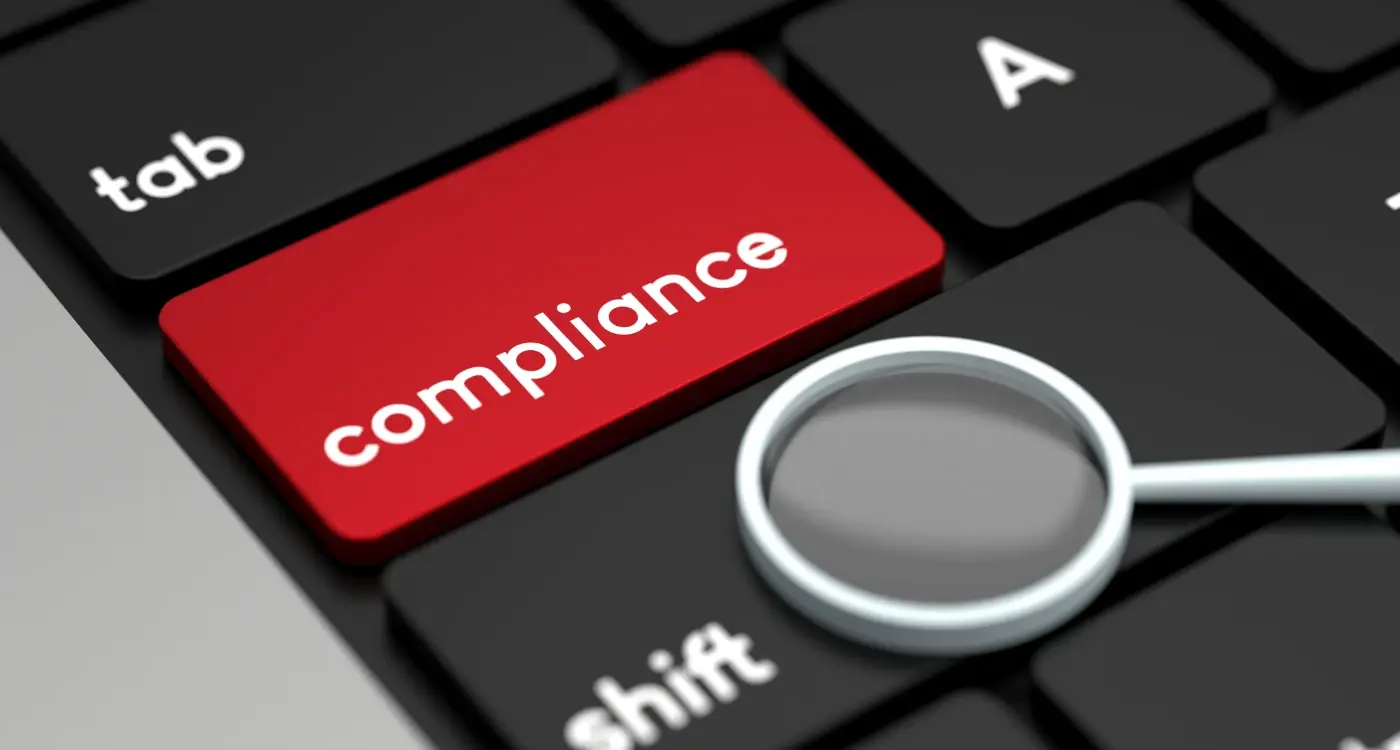What Legal Issues Should I Consider When Building a Travel Booking App?
You've got a brilliant idea for a travel booking app that could change how people plan their trips. You can see the potential, you know there's demand, and you're ready to build something special. But then someone mentions the word "legal" and suddenly everything feels overwhelming. What laws apply to travel apps? What happens if something goes wrong with a booking? Do you need special licences to sell flights or hotels?
Building a travel booking app isn't just about creating great user experiences and connecting to booking APIs—there's a whole minefield of legal issues that can trip you up if you're not prepared. I've worked on travel apps where clients have had to rebuild entire features because they didn't consider compliance from the start. It's frustrating, expensive, and completely avoidable.
The travel industry is one of the most regulated sectors in the digital economy, with laws covering everything from data protection to financial transactions and international licensing requirements.
The good news is that understanding these legal requirements doesn't have to be scary or confusing. Once you know what to look for, you can build compliance into your app from day one rather than trying to retrofit it later. This guide will walk you through the key legal areas you need to consider—from protecting user data and handling payments securely, to managing liability and meeting accessibility standards. We'll keep things simple and practical, so you can focus on building a travel app that's not just successful, but legally sound too.
Understanding Data Protection Laws
When you're building a travel booking app, you'll be collecting loads of personal information from your users—names, addresses, passport details, payment information, and travel preferences. This makes data protection laws absolutely critical to understand; getting it wrong can result in hefty fines and seriously damage your reputation.
The main regulation you need to know about is GDPR (General Data Protection Regulation). Even though it's European law, it affects any app that processes data from EU citizens—so basically everyone. GDPR requires you to get clear consent before collecting data, tell people exactly what you're doing with their information, and give users the right to access, correct, or delete their data.
Key GDPR Requirements for Travel Apps
- Obtain explicit consent before collecting personal data
- Provide clear privacy notices explaining data usage
- Implement data protection by design and default
- Allow users to access, modify, or delete their personal information
- Report data breaches within 72 hours
- Appoint a Data Protection Officer if processing large amounts of data
Beyond GDPR, you'll need to consider local laws in countries where your app operates. The US has state-specific regulations like the California Consumer Privacy Act, whilst countries like Brazil and India have their own comprehensive data protection frameworks.
Practical Implementation Tips
Start by conducting a data audit—map out exactly what personal information you collect, where it's stored, and who has access to it. Implement privacy by design principles from day one rather than trying to retrofit compliance later. You'll also want to establish clear data retention policies and secure deletion procedures.
Working with a legal expert who specialises in data protection is worth the investment. They can help you navigate the complex requirements and create policies that actually work for your specific use case.
Payment Processing and Financial Compliance
When you're building a travel booking app, handling money brings a whole new level of legal complexity. I've seen plenty of developers get caught off guard by the financial regulations they need to follow—and trust me, ignorance isn't bliss when regulators come knocking.
The most important thing to understand is that you're not just processing payments; you're handling sensitive financial data and potentially acting as an intermediary between customers and travel providers. This means you need to comply with Payment Card Industry Data Security Standards (PCI DSS), which govern how you store, process, and transmit credit card information.
Key Financial Regulations
Different countries have different rules about money handling. In the UK, you might need to register with the Financial Conduct Authority if you're holding customer funds for more than a few days. The EU has similar requirements under the Payment Services Directive. Getting this wrong can result in hefty fines and your app being shut down.
- PCI DSS compliance for card data security
- Anti-money laundering (AML) regulations
- Know Your Customer (KYC) requirements
- Financial services licensing where applicable
- Consumer protection laws for refunds and disputes
Work with established payment processors like Stripe or PayPal rather than handling card details directly—they'll handle most compliance issues for you and it's much safer for your business.
Refunds and Chargebacks
Travel bookings come with high chargeback rates, especially when flights get cancelled or hotels overbook. You need clear policies about who's responsible when things go wrong—is it you, the airline, or the customer? Your terms need to spell this out clearly, and you'll need systems to handle disputes quickly. The payment processing agreements you sign will also affect your liability, so read the fine print carefully.
User Terms of Service and Privacy Policies
Writing terms of service and privacy policies for your travel booking app isn't just about ticking legal boxes—it's about building trust with your users from day one. These documents tell people exactly what they're signing up for when they download and use your app, and they protect both you and your users if something goes wrong.
Your terms of service need to cover the basics of how people can use your app, what happens if bookings go wrong, and what users can expect from your service. Think of it as the rulebook for your app. Privacy policies are different—they explain what personal information you collect, how you use it, and who you might share it with. For travel apps, this includes passport details, payment information, and location data.
What Your Terms Should Include
Travel booking apps need specific clauses that other apps don't worry about. You'll need sections covering booking cancellations, price changes, and what happens when flights get delayed or hotels overbook. Don't forget about user-generated content like reviews and photos—you need clear rules about what people can and can't post.
- Booking confirmation and cancellation procedures
- Payment terms and refund policies
- Liability limitations for travel disruptions
- User account responsibilities and restrictions
- Intellectual property rights for app content
- Dispute resolution processes
Making Policies User-Friendly
Nobody enjoys reading legal documents, but people are more likely to trust apps with clear, straightforward policies. Write in plain English rather than legal jargon—your users will thank you for it. Make sure your policies are easy to find in your app and keep them updated when you add new features or change how your app works.
International Travel Regulations and Licensing
Building a travel booking app means dealing with regulations from multiple countries—and trust me, it gets complex fast. Each destination has its own rules about who can sell travel services, what licences you need, and how bookings should be handled. Some countries require you to have a physical presence or local partnership before you can offer travel services to their residents.
The travel industry is heavily regulated for good reasons; people are spending significant money and need protection when things go wrong. Many countries have specific licensing requirements for travel agents and tour operators. In some places, you'll need an ATOL licence if you're selling flight packages. Other regions might require you to register as a travel agent or obtain special permits before you can legally facilitate bookings.
Understanding IATA and Industry Standards
The International Air Transport Association sets global standards that affect how flight bookings work. If you're connecting directly with airlines rather than using third-party APIs, you'll need to understand IATA regulations and potentially obtain accreditation. This isn't just paperwork—it affects how you handle customer data, process refunds, and manage booking changes.
Different countries have vastly different expectations about consumer protection in travel bookings, and ignoring these differences can lead to serious legal troubles down the line.
Regional Compliance Variations
European markets have strict package travel regulations that might classify your app as a tour operator if you're bundling services together. Meanwhile, some Asian markets require local business registration before you can process bookings for their residents. The key is researching each market thoroughly before launching—legal issues in the booking app space often stem from assuming one country's rules apply everywhere else.
Liability and Insurance Requirements
When you're building a travel booking app, liability becomes a real headache—and not the kind that goes away with a paracetamol. The moment someone books through your platform, you become part of their travel experience, which means you could be held responsible when things go wrong.
Travel is unpredictable. Flights get cancelled, hotels overbook, and sometimes people get food poisoning from that seafood restaurant you recommended. The question isn't whether problems will happen—it's whether you'll be legally responsible for them when they do.
What You Could Be Liable For
Your liability exposure depends on how your app works. If you're simply connecting users with third-party providers, your risk is different than if you're actually selling travel services directly. But here are the main areas where liability can bite:
- Booking errors or technical failures that cost users money
- Misleading information about hotels, flights, or destinations
- Data breaches that expose personal or payment information
- Discrimination claims if your app doesn't meet accessibility standards
- Issues with user-generated content like fake reviews
Insurance Coverage You Need
Professional indemnity insurance is your first line of defence—it covers you when clients claim your services caused them financial loss. Public liability insurance handles claims for injury or property damage, whilst cyber liability insurance becomes crucial given how much sensitive data travel apps handle.
Some regions require specific travel industry insurance if you're selling packages directly. Don't assume your general business insurance covers everything; travel apps have unique risks that standard policies often exclude. Get specialist advice because the wrong coverage could leave you exposed to claims that could shut down your business overnight.
Age Restrictions and Booking Permissions
When you're building a travel booking app, age restrictions aren't just a nice-to-have feature—they're a legal requirement in most countries. The basic rule is simple: minors (anyone under 18) generally can't enter into binding contracts without parental consent. This creates a massive headache for booking apps because every reservation is technically a contract between your user and the service provider.
The complexity doesn't stop there. Different countries have different age thresholds for contract law, and travel services often have their own age policies. Airlines might allow unaccompanied minors from age 5 (with special arrangements), whilst car rental companies typically require drivers to be 21 or older. Hotels fall somewhere in between, with most requiring guests to be 18 to check in independently.
Implementing Age Verification Systems
Your app needs robust age verification that goes beyond simply asking users their birth date. Smart developers implement multi-layer verification that includes payment method validation (since most payment cards require adult ownership) and identity document checks for high-value bookings.
- Require date of birth during registration
- Validate payment methods against account holder age
- Flag bookings that require adult supervision
- Implement parental consent mechanisms for under-18s
- Block age-restricted services automatically
Build age restrictions into your booking flow early—retrofitting compliance is much harder than designing it in from the start. Your legal team will thank you later!
Remember that some jurisdictions have specific rules about collecting data from minors. The Children's Online Privacy Protection Act in the US, for example, requires parental consent before collecting personal information from children under 13. These compliance requirements can significantly impact your app's user experience and development costs.
Accessibility Standards and Legal Requirements
Making your travel booking app accessible isn't just the right thing to do—it's actually required by law in many countries. The Web Content Accessibility Guidelines (WCAG) might sound boring, but they're your roadmap to building an app that works for everyone, including people with disabilities.
In the UK, the Equality Act 2010 makes it clear that digital services need to be accessible. The Americans with Disabilities Act (ADA) does the same thing across the pond. If your app can't be used by someone with visual impairments, hearing difficulties, or motor disabilities, you could face legal action. And trust me, accessibility lawsuits are becoming more common every year.
What Does Accessibility Actually Mean?
Think about someone using a screen reader to navigate your app—can they book a flight just as easily as someone who can see perfectly? Your buttons need proper labels, your colour contrasts need to be strong enough, and your text needs to be readable. Voice control support is becoming increasingly important too.
Images need alt text descriptions; form fields need clear labels; error messages need to be announced properly. If someone's using your app with one hand because they have limited mobility, all the important functions should still work.
Getting It Right From the Start
Building accessibility into your app from day one is much cheaper than retrofitting it later. Your development team should be testing with screen readers, checking colour contrasts, and making sure everything works with assistive technologies. The WCAG 2.1 AA standard is what most legal requirements point to—it's your baseline for compliance.
Conclusion
Building a travel booking app isn't just about creating something that looks good and works well—it's about making sure you're legally covered from day one. I've seen too many developers get caught up in the exciting bits like user interface design and forget about the legal groundwork until it's almost too late.
The legal issues we've covered aren't optional extras you can add later; they're fundamental requirements that need to be baked into your app from the start. Data protection laws affect how you collect and store user information, payment processing rules determine how you handle transactions, and your terms of service protect both you and your users. Miss any of these and you could face hefty fines or even have to shut down your app entirely.
International travel regulations make things more complex—what works in one country might not work in another. Licensing requirements vary wildly between regions, and age restrictions for booking can catch you off guard if you haven't planned for them. Accessibility standards aren't just good practice; they're legal requirements in many places.
The booking app market is competitive enough without having to deal with legal problems that could have been avoided. Getting your legal framework right from the beginning means you can focus on what really matters: building an app that people love to use. It's not the most exciting part of app development, but it's one of the most important. Your future self will thank you for taking the time to get this right now rather than scrambling to fix problems later when they're much more expensive to solve.
Share this
Subscribe To Our Learning Centre
You May Also Like
These Related Guides

How Do I Make My App Compliant With Different Countries' Data Laws?

Which Compliance Standards Must Enterprise Apps Meet?



